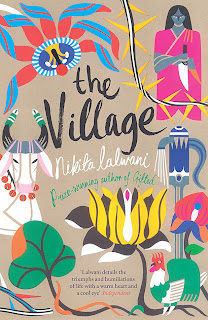"The Yips" refers to the disabling twitch which some golfers develop when attempting short putts, usually a sign of anxiety or psychological stress. In order to deal with this they will frequently switch from a standard putter to a long “belly putter” in an effort to compensate. The central character of this novel, Stuart Ransom, has such an affliction, although it is one of the least of his many problems. He has a colourful (and unrealistic) back story, but has become a flamboyant and successful professional golfer, greatly loved by the tabloid press and forever embroiled in one scandal or another. As we meet him, his golfing career seems to be on downward trajectory to disaster. The development of The Yips is symptomatic of this, but in the context of the novel provides a metaphor for the many other flaws possessed by him and by almost all of the other characters with whom he interacts.
Among these are a man who has had cancer seven times, his wife (a priest given to outbursts of bizarre and erratic behaviour) and the family of a notorious local fascist. On a previous visit to the town, Ransom managed to hit the fascist’s wife on the head with a stray golf ball, leading to an ongoing public feud with her son. Meanwhile, her daughter has become an agoraphobic recluse, making a living as a hyperrealist tattooist of pubic hair for mainly far Eastern clients. Mixed in with these eccentrics is an ever-present barmaid with multiple personas, a freethinking Islamic sex therapist and his family and Ransom’s long-suffering entourage. It is a heady mix which works more successfully than you might expect from my descriptions.
Towards the end of the novel there is a section where two of the characters discuss what life is like. Mainly consisting of stuff they conclude. All sorts of stuff, piled up fairly randomly and sometimes threatening to fall over, at which point everyone starts to build it up again. To an extent, this sums up Barker’s writing style and in particular the plot development in this novel. But it works - it made me laugh in places and provoked a few ideas and thoughts worth pursuing. It represents an easier introduction to her work than her previous Booker prize listed novel (Darkmans). Recommended.









.jpg)














